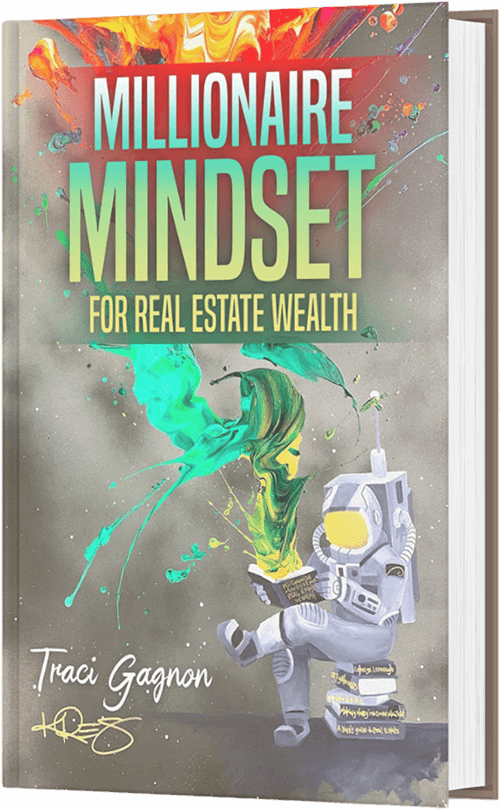- Golden Hour Glances: A Deep Dive into Current Celebrity News and Evolving Narratives.
- The Rise of Authenticity (and its Performance)
- Navigating Cancel Culture and Public Accountability
- The Evolution of Paparazzi and Privacy
- The Impact of Streaming Services on Celebrity Visibility
- Brand Partnerships and Influencer Culture
- The Mental Health Conversation and Celebrity Advocacy
Golden Hour Glances: A Deep Dive into Current Celebrity News and Evolving Narratives.
The world of celebrity news is a constantly evolving landscape, often blurring the lines between private lives and public fascination. It’s a realm where carefully curated images and fleeting moments dominate headlines, offering glimpses into the lives of those who live in the spotlight. However, beyond the glamour and red carpets, lies a complex industry driven by media cycles, public perception, and the ever-present desire for a connection with individuals we often only know through screens. This exploration delves into the current trends, shifting narratives, and the underlying forces shaping the discourse surrounding celebrities today.
The digital age has fundamentally altered how we consume information, and celebrity coverage is no exception. Social media platforms have become primary sources of news, allowing celebrities to bypass traditional media outlets and communicate directly with their fans. This direct access provides a seemingly unfiltered view of their lives, but often comes with a carefully crafted persona. The speed at which information spreads, and the echo chambers created online, greatly impact public opinion and portray a narrow and often skewed picture.
The Rise of Authenticity (and its Performance)
A significant trend in recent times has been the perceived demand for ‘authenticity’ from public figures. Audiences are increasingly skeptical of overly polished narratives and manufactured images. Celebrities who appear more genuine, sharing vulnerabilities and imperfections, often garner greater support and engagement. However, it’s crucial to acknowledge that even this ‘authenticity’ is often a performance, carefully managed and strategically presented to cultivate a desired image. The public’s desire for a ‘real’ connection has inadvertently created a new form of curated transparency.
| Zendaya | 4.5% | Behind-the-scenes sneak peeks, advocacy for social causes | |
| Dwayne Johnson | 3.8% | Workout routines, family moments, motivational speeches | |
| Selena Gomez | TikTok | 6.2% | Raw stories about mental health, DIY beauty tips |
| Ryan Reynolds | 2.9% | Self-deprecating humor, playful banter with fans |
Navigating Cancel Culture and Public Accountability
The influence of social media isn’t limited to shaping perceptions of authenticity. It has also amplified the power of ‘cancel culture’, where individuals are publicly shamed and ostracized for perceived missteps or controversial opinions. While it can be argued that this serves as a form of public accountability, it also presents challenges. The speed and intensity of online backlash can be disproportionate to the offense, and the lack of due process can lead to irreversible damage to reputations. The concept of forgiveness and second chances is often lost in the fervor of online outrage. It raises complex questions about the boundaries of public accountability, the presumption of innocence, and the long-term consequences of online shaming.
The application of ‘cancel culture’ isn’t always consistent and often depends on the celebrity’s existing level of public favor and social capital. Celebrities with strong support networks and savvy PR teams are more likely to weather the storm, while others may struggle to recover from a single misstep. This inherent inequality emphasizes the systemic power imbalances at play. Furthermore, there’s a growing critique that ‘cancel culture’ can be performative, with individuals and brands aligning themselves with outrage to gain social approval rather than genuine commitment to social justice.
The very definition of what constitutes a ‘cancelable offense’ is subjective and constantly shifting, adding to the unpredictability and potential for overreach. There’s a need for more nuanced conversations and a greater emphasis on restorative justice rather than simply punitive measures.
The Evolution of Paparazzi and Privacy
The traditional image of paparazzi lurking outside celebrity homes has evolved alongside technology and social media. While the relentless pursuit of exclusive photographs continues, the methods have become more sophisticated. Drone technology, long-lens cameras, and the ubiquitous presence of smartphones allow for constant surveillance. Celebrities are increasingly vocal about the intrusiveness of paparazzi and the impact on their privacy, yet the demand for these images from the public remains high. The legal landscape surrounding paparazzi photography is complex, often balancing the right to privacy with freedom of the press.
- Legal battles over privacy rights often set precedents for future cases.
- Celebrities are leveraging social media to control their image and circumvent paparazzi.
- Technological advancements like facial recognition pose new threats to privacy.
- The public’s fascination with celebrity lives fuels the demand for paparazzi photos.
The Impact of Streaming Services on Celebrity Visibility
The rise of streaming services has dramatically changed the landscape of entertainment and, consequently, the visibility of celebrities. Traditional avenues for exposure, such as network television and blockbuster film releases, are being supplemented – and in some cases, replaced – by streaming platforms. This shift has created both opportunities and challenges for actors, musicians, and other performers. Streaming services offer a wider reach and allow for more diverse storytelling, but they also present competition with a vast catalogue of content. The metrics for success are also different, relying on streaming numbers rather than box office receipts or television ratings.
The increased competition has led to celebrities taking on more diverse roles and exploring different platforms to maintain their relevance. Many are producing their own content through independent production companies or partnering with streaming services to create original programming. This shift towards creator-driven content gives celebrities more control over their careers and allows them to tell stories that align with their personal values. However, it also requires them to take on more responsibility for the financial and creative success of their projects.
The ability to analyze streaming data provides invaluable insights into audience preferences, allowing studios and streamers to tailor their content to maximize viewership. This data-driven approach can be both empowering and limiting, potentially leading to a homogenization of content and a reluctance to take risks on innovative or unconventional projects.
Brand Partnerships and Influencer Culture
Celebrity endorsements have long been a lucrative aspect of the entertainment industry, but the nature of these partnerships has evolved with the rise of influencer culture. Traditional advertisements featuring celebrities are now often complemented by sponsored posts on social media, where celebrities leverage their platforms to promote products and services directly to their followers. The lines between advertising and authentic content blurring has become a growing concern. Consumers are becoming more aware of the financial incentives behind these endorsements and are increasingly skeptical of celebrity promotions.
- Transparency is crucial: Disclosure of sponsored content is legally required in many regions.
- Authenticity matters: Partnerships that align with a celebrity’s personal brand are more effective.
- Micro-influencers are gaining traction: Smaller influencers with niche audiences offer higher engagement rates.
- Brand reputation is at stake: A celebrity scandal can damage a brand’s image.
The Mental Health Conversation and Celebrity Advocacy
In recent years, there has been a growing awareness of mental health issues, and celebrities have played a significant role in normalizing the conversation. Many have openly shared their struggles with anxiety, depression, and other mental health challenges, helping to reduce stigma and encourage others to seek help. This increased visibility has sparked important conversations about the pressures faced by individuals in the public eye and the importance of prioritizing mental well-being. However, the public scrutiny that comes with celebrity also makes it difficult to navigate these challenges, and there are concerns about the potential for exploitation of personal stories.
| Demi Lovato | Bipolar disorder, addiction recovery | Social Media, Documentary Films |
| Michael Phelps | Depression, anxiety | Interviews, Public Speeches |
| Lady Gaga | PTSD, trauma | Social Media, Born This Way Foundation |
| Shawn Mendes | Anxiety | Social Media, Public Statements |
The conversation surrounding celebrity mental health isn’t simply about sharing personal experiences. It’s about challenging societal norms and advocating for improved access to mental health resources. Celebrities are increasingly using their platforms to support mental health organizations, fundraising for research, and advocating for policy changes. It’s important to remember that celebrities are not mental health professionals, and their experiences are unique to their circumstances. However, their willingness to speak openly about these issues can have a profound impact on public perception and encourage others to prioritize their own mental well-being.
The evolving narrative surrounding celebrity requires ongoing critical analysis, not merely passive consumption. Recognizing the constructed nature of public personas, navigating the complexities of online culture, and encouraging responsible consumption of media are paramount.







